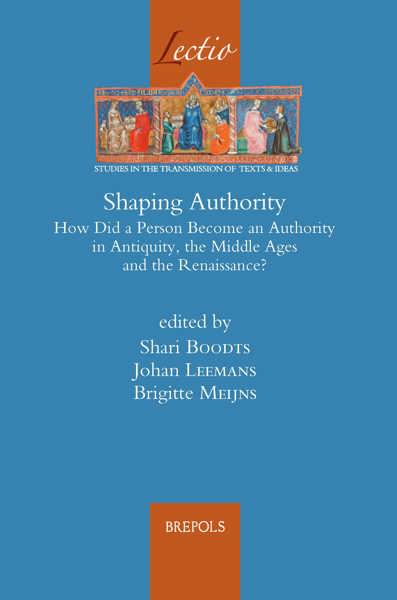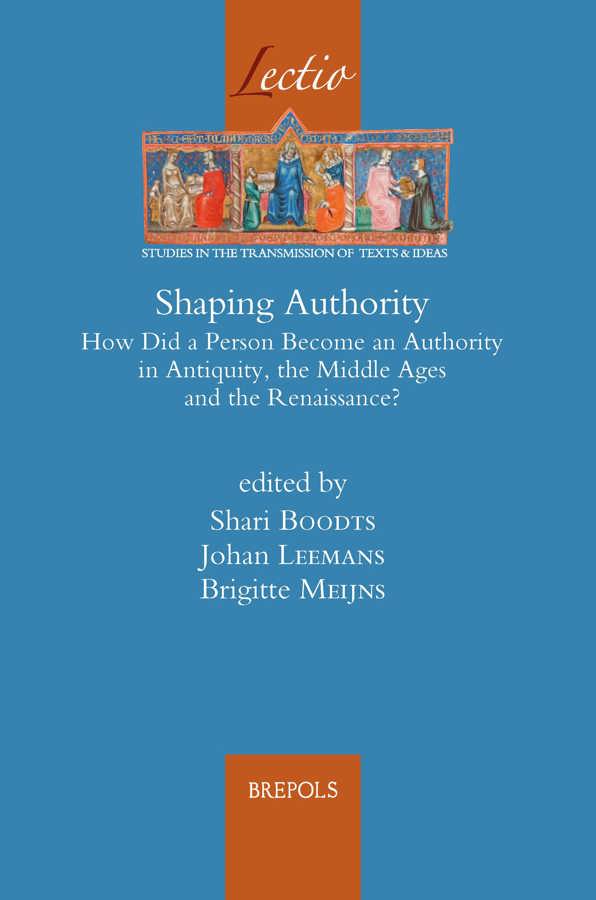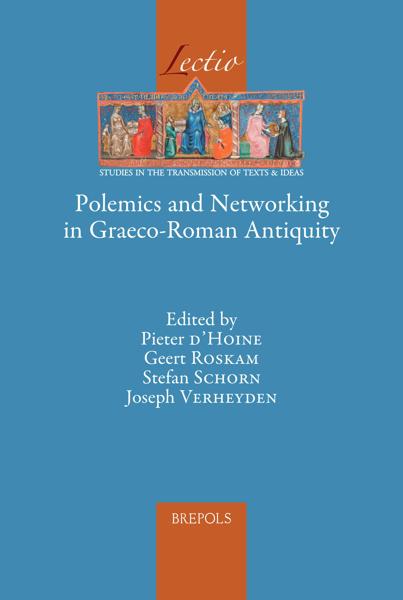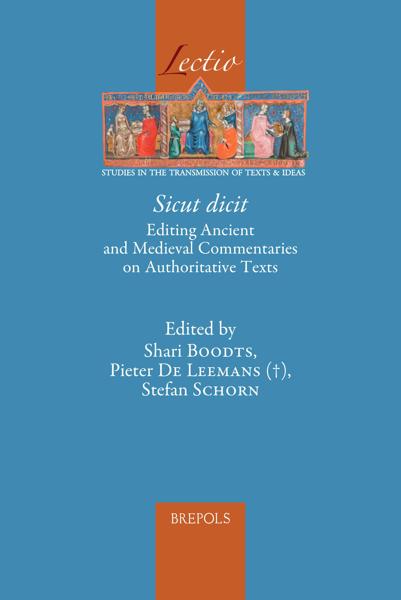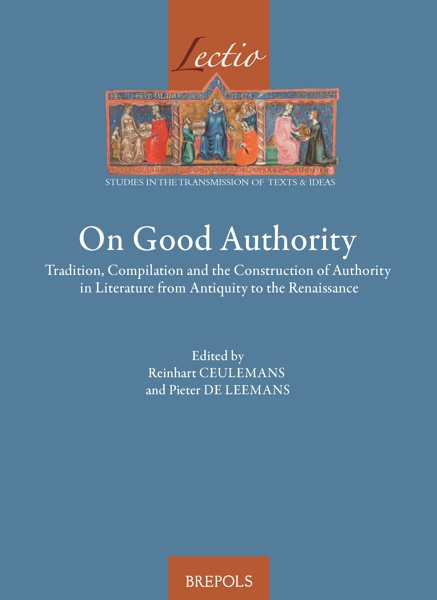
Shaping Authority
How Did a Person Become an Authority in Antiquity, the Middle Ages and the Renaissance?
Shari Boodts, Johan Leemans, Brigitte Meijns (eds)
- Pages: 458 p.
- Size:156 x 234 mm
- Language(s):English
- Publication Year:2016
- € 130,00 EXCL. VAT RETAIL PRICE
- ISBN: 978-2-503-56823-2
- Hardback
- Available
- € 130,00 EXCL. VAT RETAIL PRICE
- ISBN: 978-2-503-56905-5
- E-book
- Available
This volume offers case studies which reflect the variety of trajectories, concerns, actors and factors that contributed to the fashioning of the postmortem and lasting authority of historical persons in premodern intellectual history: a time span of two millennia.
- Cultural & intellectual history (c. 500-1500)
- Book History, Manuscript Studies & Palaeography
- Ancient Greek and Roman (Classical) Philosophy
- Italian literature
- Dutch language & literature
- Classical Greek literature
- Greek literature of the Early Christian church
- Early Christian & Patristic Latin literature
- Medieval Latin literature
- History of Science
« L’ouvrage aborde de manière exhaustive et pertinente un thème assez important pour les chercheurs intéressés par la pensée antique, médiévale et renaissante. Les époques et les moments saillants de la question font l’objet d’une analyse claire. En outre, chaque contribution présente une longue bibliographie primaire et secondaire. Le volume est donc vivement conseillé à celles et ceux qui entendent se plonger dans l’étude d’un phénomène culturel, politique et social qui a caractérisé les contenus et les méthodes du débat scientifique avant l’époque moderne. » (Matteo Scozia, dans Archives de sciences sociales des religions, 2017, p. 289)
The cultural and religious history from Antiquity through the Renaissance may be read through the lens of the rise and demise of auctoritates. Throughout this long period of about two millennia, many historical persons have been considered as exceptionally authoritative. Obviously, this authority derived from their personal achievements. But one does not become an authority on one’s own. In many cases, the way an authority’s achievements were received and disseminated by their contemporaries and later generations was the determining factor in the construction of their authority. This volume focuses on the latter aspect: what are the mechanisms and strategies by which participants in intellectual life at large have shaped the authority of historical persons? On what basis, why and how were some persons singled out above their peers as exceptional auctoritates and by which processes did this continue (or discontinue) over time? What imposed geographical or other limits on the development and expansion of a person’s auctoritas? Which circumstances led to the disintegration of the authority of persons previously considered to be authoritative? The case-studies in this volume reflect the dazzling variety of trajectories, concerns, actors and factors that contributed over a time span of two millennia to the fashioning of the postmortem and lasting authority of historical persons.
Why are Some Greater than Others? Actors and Factors Shaping the Authority of Persons from Antiquity to the Renaissance (Johan Leemans & Brigitte Meijns)
Epistemic Authority in Textual Traditions: A Model and Some Examples from Ancient Philosophy (Jan Opsomer & Angela Ulacco)
Aristotle’s Authority in the Tradition of Natural Problems. The Case of Plutarch of Chaeronea (Michiel Meeusen)
Plato vs. Plato on the Generation of the Cosmos (Tim. 28B). Authority in the Interpretations of Plutarch and Proclus (Bram Demulder)
Deconstructing and Reconstructing Authority. The Interplay of Homer’s and Dio Chrysostom’s Authorities in the Making and Reception of the Trojan Oration (Chiara Meccariello)
‘But I May Be Wrong’: The Self-Conscious Construction of Episcopal Authority in the Sermons of Ambrose of Milan (Michael Stuart Williams)
Revisiting an Authority’s Secret(s) of Success: The Rise and Decline of the Latin Athanasius (Christian Müller)
Wonder, Mirror Neurons and Embodied Cognition in the Early Medieval Experience of Miracles (David Defries)
Engineered Holy Authority and the Tenth-Century Vita of St. Barbatianus of Ravenna (Edward M. Schoolman)
The Dark Side of Remembrance: How Medieval Chroniclers Demonized Bishop Adalbero of Laon (977‒1033) (Jelle Lisson)
Authorship, Authority, and Authorization: The Cases of Abbot Bernard of Clairvaux and Abbess Hildegard of Bingen (John Van Engen)
How Jan van Leeuwen († 1378) Was Made an Author. Opera Omnia and Authority (Eva Vandemeulebroucke & Youri Desplenter)
Between Norms and Books. Constructing Authority in the Fifteenth Century (Giacomo Signore, Anna Dlabačová & Marieke Abram)
Antonio Manetti’s Brunelleschi: An Attempt at Establishing Artistic Authority (Patricia D. Meneses)
